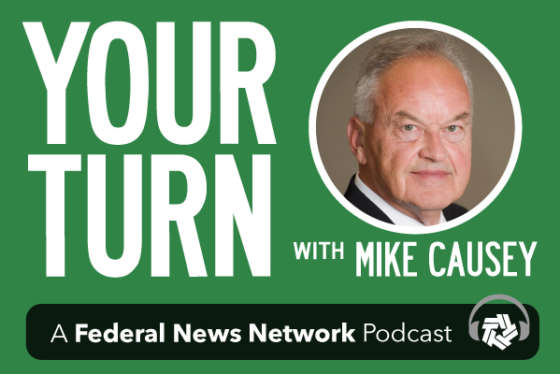
During these grim times, estate planning offers peace of mind
Along with the coronavirus, a sense of mortality is in the air these days. That means tax attorney and estate planner Tom O’Rourke’s voicemail is full, as...
Best listening experience is on Chrome, Firefox or Safari. Subscribe to Federal Drive’s daily audio interviews on Apple Podcasts or PodcastOne.
Along with the coronavirus, a sense of mortality is in the air these days. That means tax attorney and estate planner Tom O’Rourke’s voicemail is full as clients, sometimes in a panic, check in with him in case they check out.
“In recent weeks, I’ve gotten calls from people I haven’t heard from in 10 years,” O’Rourke said.
As grim as it might seem, O’Rourke said on Your Turn with Mike Causey, people want to get their affairs in order.
“All of a sudden, they turn on the TV at night and they see young people, old people, famous people, rich people, poor people, all kinds of people getting coronavirus,” he said. “And I think it strikes a chord with them and makes them realize that they’re not going to be around forever.”
During years of advising people, O’Rourke says he’s focused on what his clients need to do in terms of estate planning, writing a will that distributes money and property to their satisfaction, and having the proper legal documents, in the event of mental or physical incapacitation.
He says he got a call recently from a relatively healthy 85-year-old longtime client, who said he wanted to make sure his “medical directive” to not be hooked up to a ventilator was iron clad with no room for misinterpretation.
“Most calls aren’t that grim, but they are focused on death right now, unfortunately,” O’Rourke said.
The simple course of action during these types of discussions with his clients is to review everything.
“So far, in every case where I have a conversation with a client, they already have everything in place,” he said. “So they’ve done their planning already and they don’t need to do anything further.”
O’Rourke emphasizes the need for an “advanced medical directive” in case you can’t make decisions for yourself. You also need a “living will,” he said, confirming your wishes as to what actions you want taken to keep you alive “if you’re terminally ill or in a vegetative state.”
In picking someone to make such life-and-death decisions, O’Rourke said to pick someone in whom you have total confidence and who is geographically nearby. You don’t want an ex-spouse or child living overseas to be the person in charge of your fate, he said.
“The only thing you can be confident of is things are going to change,” O’Rourke said. “And things do change over time and that, many times, is when you need to revisit your estate plan.”
Copyright © 2025 Federal News Network. All rights reserved. This website is not intended for users located within the European Economic Area.
Peter Musurlian is a producer at Federal News Network.
Follow @PMusurlianWFED




